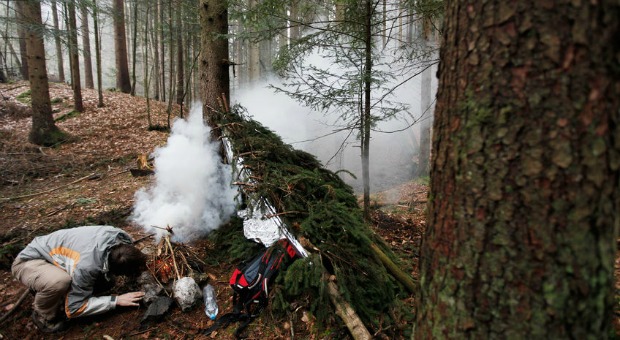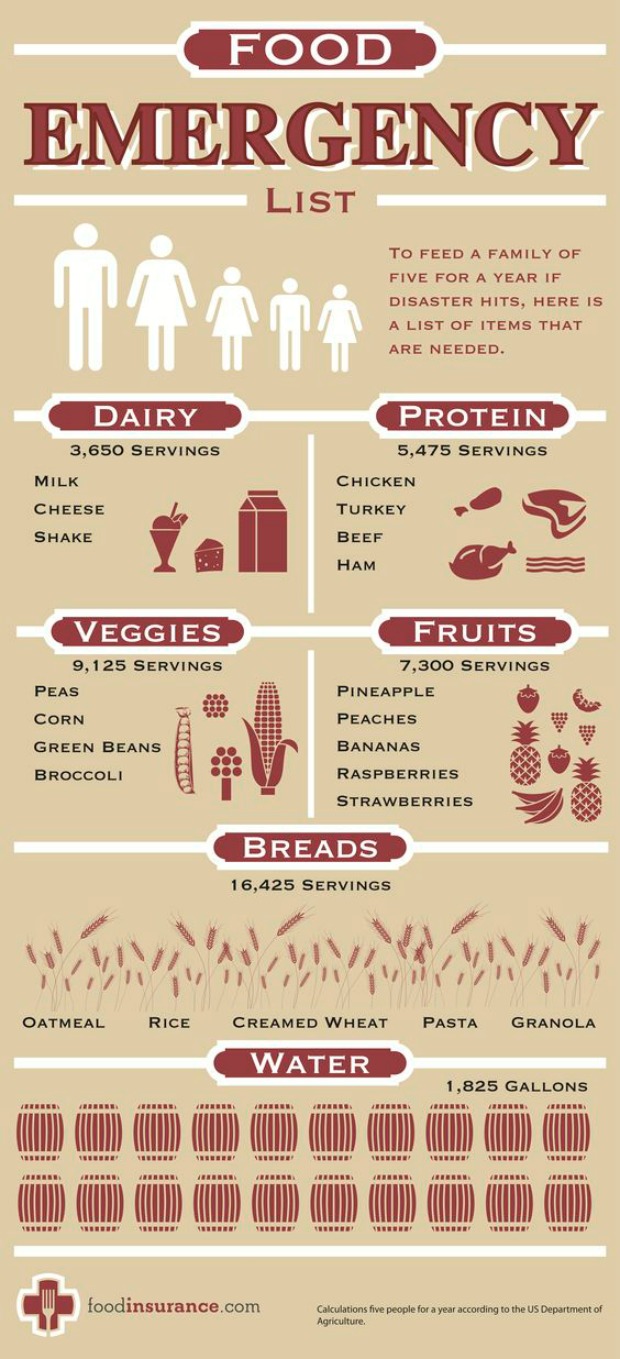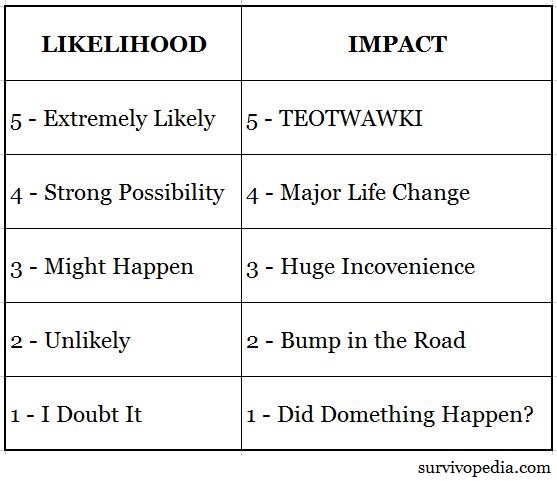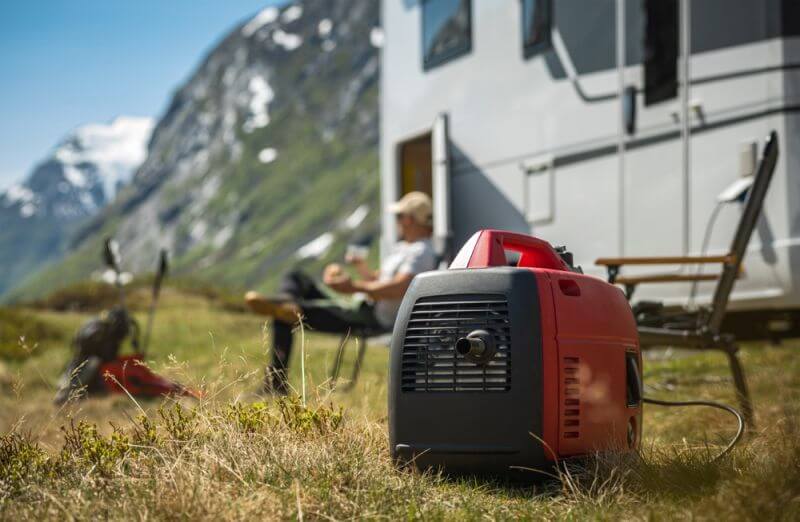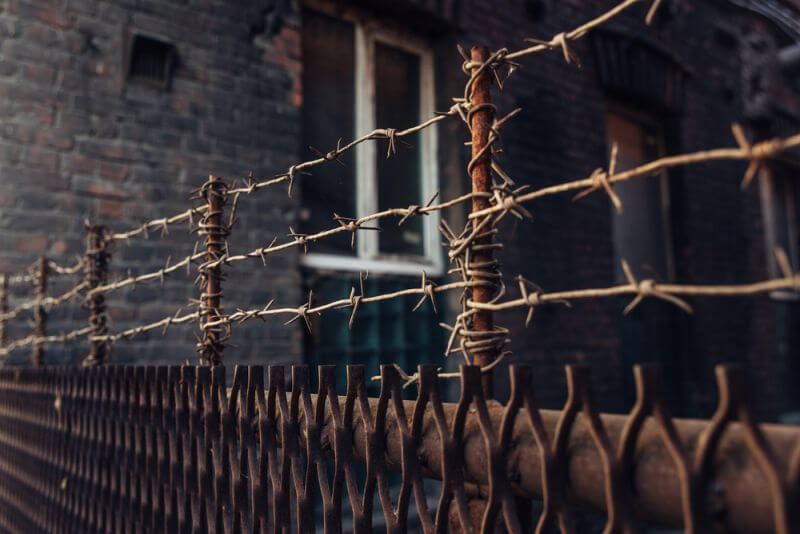Bit by bit, the ranks of preppers are growing all the time.
More and more people are waking up to the fact that the government can’t protect them and doesn’t even do a very good job of providing support in the aftermath of a disaster. Oh, they throw money at it, but money isn’t the answer to everything.
Every new prepper is faced with the same problems and the same questions they have to answer for themselves. It’s not that there’s no information available for new preppers to use, it’s that there’s too much information.
Check online for prepping or survival and you’ll find an enormous amount of information, not all of which agrees with other sources. Wading through all that and finding the information that one needs can be a daunting task.
You might very well be one of those newbies; someone who has just decided to look at prepping for the first time. If so, welcome to one of the most important movements in our country today.
Prepping is an individual journey that each of us take, with no two walking exactly the same path. Yet we are preppers together, part of a fellowship of like-minded people who have decided that it’s time to do something for themselves.
If you’re reading this, you’ve probably already decided that just looking at information isn’t enough. Being a prepper means taking action; preparing yourself and your family for whatever problem or disaster might come your way. Preppers believe in self-sufficiency; trusting in themselves in an emergency, not in the government.
But where does one begin? Of all the things that one can do to become more prepared, which one or ones are the most important? What does one have to do, in order to truly be prepared?
These questions are complicated by the fact that each person’s situation is unique. Oh, we all have things in common, but we also have our own needs, our own family, our own skills, our own resources and our own risks that we face. So cookie cutter prepping doesn’t work. Each person has to determine what their own needs are and how to best meet them.
Even so, there are some things we should all do at the beginning; things to get us on the road to becoming better prepared. The first steps we need to take on this journey may not be what you’re thinking. In fact, I’d be surprised if many preppers thought about these steps, before walking along the path for a ways.
Educate Yourself
It’s easy to think of prepping as just stockpiling supplies for a rainy day. That’s actually where most of us start off. Whether we just buy a couple of bags of beans and rice or go hog wild buying prepackaged survival food, squirreling food away for a rainy day seems like an almost instinctive act; something we easily gravitate towards, as a starting point for our prepping.
There’s nothing wrong with stockpiling food and in fact you need to do so; but before you start stockpiling, it’s a good idea to know what to stockpile. Not all foods keep well, nor do all of them provide the right nutrition to get you through an emergency. Take some time to research, before running off to the grocery store.
While you’re at it, you need to research much more than just what foods to stockpile. Our modern society doesn’t prepare us well for survival. If anything, it prepares us to die blaming others. But you can’t count on those others to help you survive. They don’t know how to either.
Our ancestors of 200 years ago were much better suited for survival than we are. For them, every year was about survival. They either stockpiled enough preserved food and cut enough firewood to make it through winter or they died. There weren’t too many other options available. Their lives were simpler, their needs and wants more closely associated with surviving and they had the skills they needed to take care of themselves.
There are a wide range of skills that you need to learn, some of which you might actually already know. If you like to go camping and spend time in the outdoors, you’re off to a good start, as the skills associated with those activities are closely related to survival skills.
Remember that a knife is a must have tool for outdoor survival as it helps you hunt, make shelter, start a fire and defend yourself.
Get your FREE easy to use and safely concealable Smith and Wesson Tactical Folding knife!
Hunting, fishing, and starting a fire are all good survival skills. But you’ll also need to know how to grow food in your garden, purify water and defend your home as well.
For preppers, learning isn’t something that begins or ends, it’s just something that is. We start out learning about survival when we get into prepping, and we keep on learning for the rest of our lives. There’s always some new skill or information to learn; all of which is ultimately useful.
Develop a Survival Mentality
Most people tend to look at survival as a physical activity; but it’s as much mental as it is physical. You have to have the right attitude to survive or no matter what you do, you’ll fail.
What do I mean by the right attitude? I mean the attitude of a survivor. You have to be convinced that you’ll survive. You have to be convinced that you’ll overcome. You need to be convinced that you can do whatever is necessary to keep yourself and your family alive.
Here in America we’re protected from many of the harsher realities of life. Few Americans have had to kill and prepare their own food. Unless you’re a hunter; you probably don’t have the slightest idea of how to kill and clean a chicken for dinner, let alone how to properly field dress and butcher a deer or other large animal. But if it’s not done properly, the meat from that animal can be tainted in the process.
But you know the hardest part of killing and preparing that animal? It’s getting over the idea of having to do it. Most of us are squeamish when it comes to things like that; squeamish to the point that we’d die before killing that chicken.
Yet for millennia our ancestors hunted, killed and ate their own game, without the slightest bit of squeamishness. Men would bring the game home from their hunt, and their wives would clean and cook the animals. They didn’t throw up; they didn’t feel funny about it; they did it, and they enjoyed the meal that they prepared.
For us, here in America, overcoming the imprint of our society and accepting the needs of survival is paramount to being able to survive. Most have to do so at a moment’s notice, when they are faced with their first disaster. But those who develop a survival mentality learn to make the adjustment at their leisure, when it’s easier to do so.
Interestingly enough, attitude is so important to survival, that every military manual on survival starts off with a section on attitude. When you consider the amount of money and effort that goes into the preparation of those manuals, that one single fact is rather telling. Attitude is key to survival.
Analyze Your Family’s Strengths and Weaknesses
Each of us has a different family, with different strengths and weaknesses. Some family members might have skills or abilities which easily translate to a survival setting. Others have special needs that have to be considered when making our survival planning. Typically, we find a bit of each in our families.
Surviving as a lone wolf is much harder than surviving as part of a team. In a team, each individual is able to take part of the load, helping each other. With each one learning the necessary skills and doing part of the necessary tasks, not only does the work become easier; but more importantly, the chances of the team’s survival becomes greater.
Your family is your first survival team. Even if you join with others, in a larger survival team, your family is still the core of your personal team. As such, it’s important that you understand what your family is capable of doing, what it is capable of learning, and even more importantly, what you might need others to do for you, because you are incapable of learning to do it for yourself.
As part of this, you also need to analyze the assets you have at your disposal.
Do you have a vacation home somewhere, that you could use as a survival retreat if you needed to? Do you have a four-wheel-drive vehicle? Do you have enough land to turn your home into a homestead? Do you have camping equipment? How much money do you have available to use for prepping? What tools do you have, which will help you survive? Does your home have a fireplace? All of this, and more, will ultimately affect your ability to survive.
This process of analyzing your family will ultimately tell you what you need to do, in order to get from where you are today, to where you need to be. But don’t just do it once; from time to time you should reanalyze the situation and make any necessary adjustments.
Decide What Risks You Face
Prepping is ultimately about being ready to face a disaster, whether that’s a personal disaster, a regional disaster or a nationwide disaster. The problem is, none of us know the disaster that we are going to face. That makes prepping a little bit difficult.
But not knowing doesn’t mean that we can’t prepare. It just means that we prepare for likelihoods, rather than certainties. In other words, while it’s safe to say with certainty that we’ll all face some sort of disaster, sometime in our lives, what exact disaster we might face is nothing more than a likelihood.
So, the thing you need to do is figure out what the most likely disasters are, that you are going to face. That stats with figuring out what possible disasters you could face, ranging all the way from loss of a job to a zombie apocalypse, with natural disasters and the loss of the electrical grid in between. Don’t leave anything out at this point, as all you’re really doing is brainstorming possibilities.
Once you have your list of possible disasters, you need to give each of them two scores, say on a scale of one to five. The first scale is how likely you feel it is that you’ll actually face that disaster. The second scale is how much of an impact that disaster would have on your life. Some disasters, such as a zombie apocalypse might have an extremely low likelihood, earning it a one on that scale, but an extremely high impact, should it actually happen, earning it a five on that scale.
(Note: The term TEOTWAWKI is commonly used by preppers to stand for “The end of the world as we know it.” This does not mean the literal end of the world, but rather, the end of our modern lifestyle that we are accustomed to.)
Combining the two scores gives you a number from 2 to 10. That number is the one you use to prioritize considering that particular disaster in your planning. The way that usually works out, is that we concentrate on the highest ones and ignore the lower ones.
But in preparing for the highest ones, we are probably going to be prepared for whatever happens with the lower ones.
Begin Planning
Now that you’ve got a pretty good idea of what you have to work with and what you’re likely to face, you can start your survival planning. Once again, this is a process that will continue throughout the rest of your life. Everything you learn has the potential to change and improve your plans.
Your plan needs to define what you will do in each of the potential disaster situations you are likely to encounter, especially the high likelihood, high impact ones. You will find that there will be some overlap between different scenarios, but there will also be things that are unique to each one.
From this, you can determine how much you need to stockpile, whether it’s for a month, six months, a year or the rest of your life. You’ll also be able to determine the best place for your family to survive, in a variety of different situations. In many of those scenarios, you’ll be better off sheltering in place, or “bugging in.” But there might also be some which require you to bug out and go to a survival retreat somewhere.
Don’t expect that you’ll get everything right the first time around. You will most likely forget some items, because of being focused on other needs. That’s okay. As you continue to study, you’ll find the places you need to fill in, to make your survival plans and your stockpile more complete.
Prepping is a process, not a destination. You’ll probably never reach that point of perfection, where you sit back and say to yourself: “Self, I’ve arrived. I’m ready for anything.”
But rather, you’ll gain more and more confidence that you can take care of yourself and your family, no matter what comes your way. Each little step will give you and your family more security, and ultimately, that’s what prepping is all about.
A good knife is the most important tool you can have with you. Click the banner below to grab this offer!


